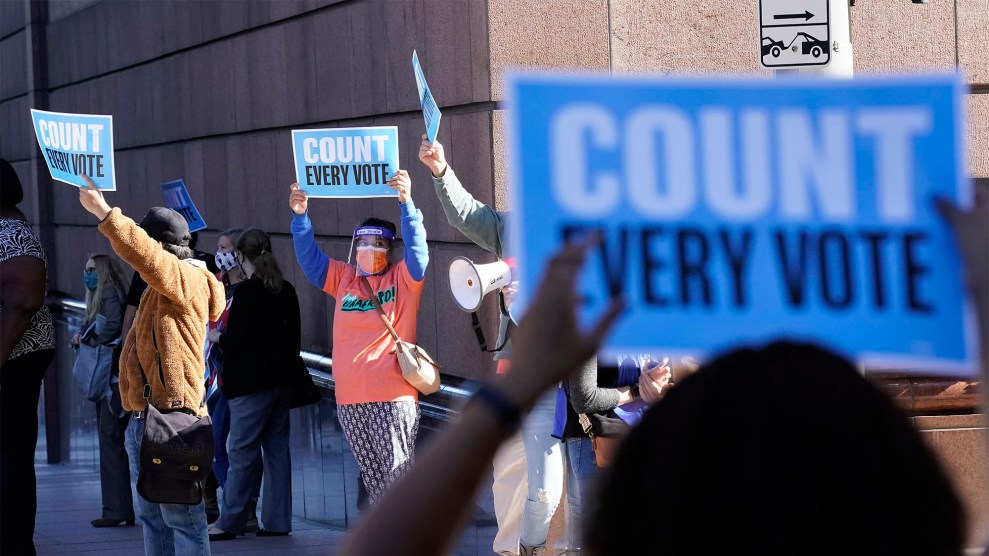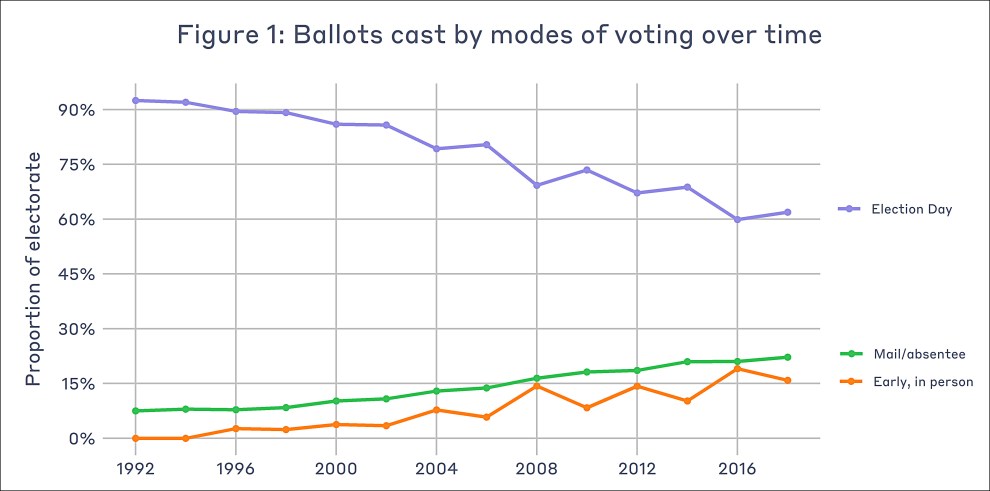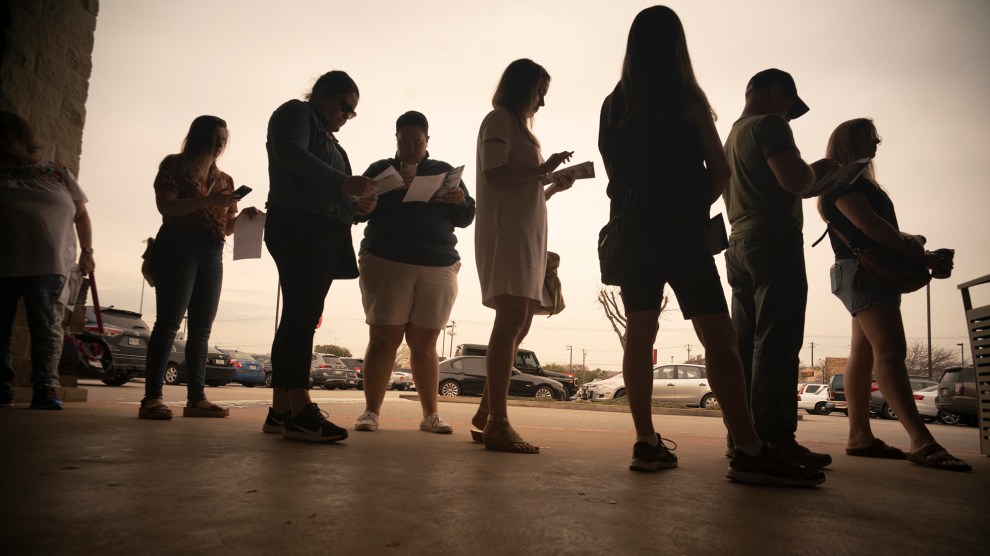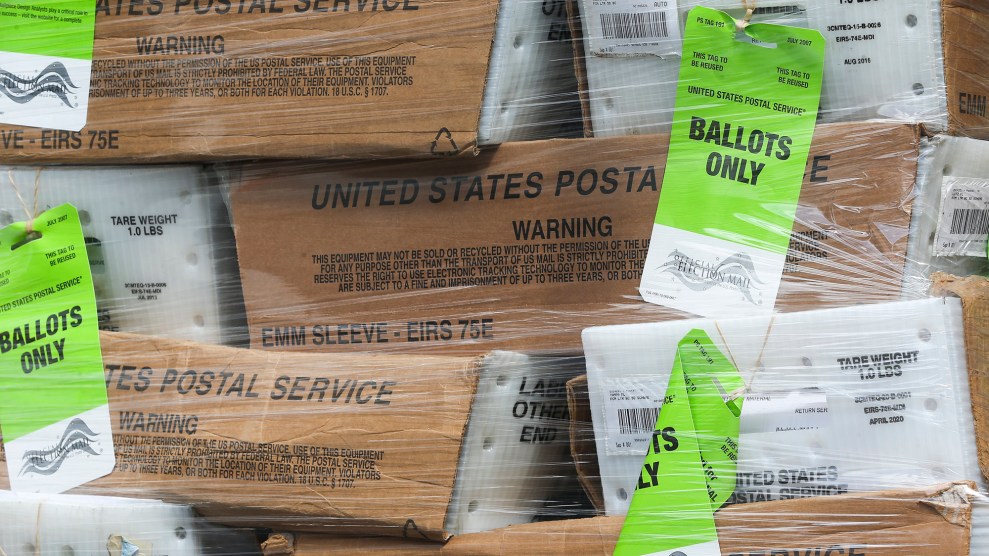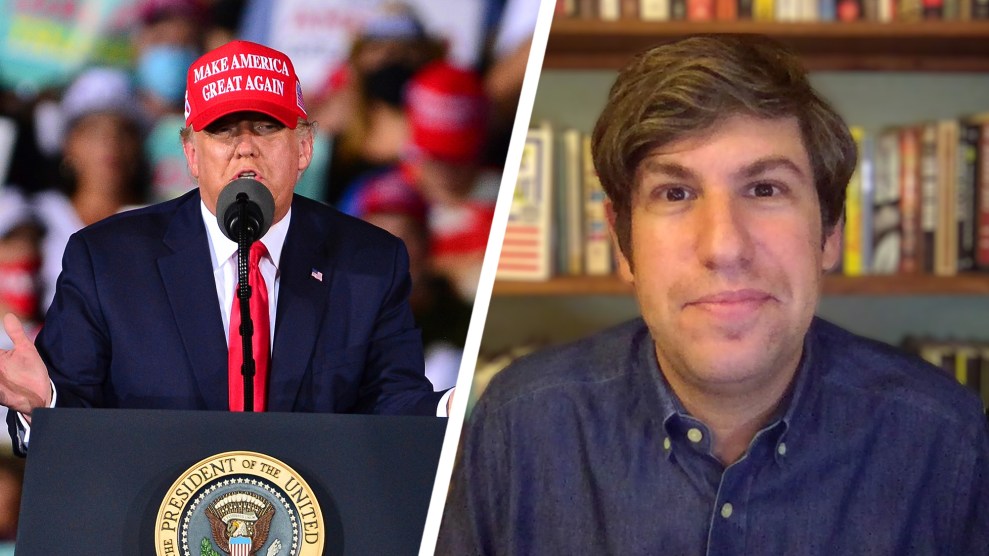
Mother Jones illustration; AP/Johnny Louis
President Donald Trump wants the winner of the election to be declared on election night and doesn’t want any votes to be counted after. But that’s not how it works. Never has been.
In this video, our colleague and voting rights expert Ari Berman lays waste to five of the biggest myths about vote counting being spread by the president and his allies in this final sprint.
Our voting rights expert @AriBerman lays waste to five of the biggest lies being spread by Trump and his allies about how your vote is counted.
Here are the facts. pic.twitter.com/udY8NELqvg
— Mother Jones (@MotherJones) November 3, 2020
Here are the facts:
1. Votes will continue to be counted after Election Day in every state.
Between in-person, mail-in, overseas, and military voting, it takes time to add up millions of ballots and ensure a correct count. Plus: Republican state legislatures in Pennsylvania, Michigan, and Wisconsin are delaying the start of the counting process for mail-in ballots, a move that Trump and his supporters appear eager to exploit to manufacture a false narrative of illegitimacy, paving the way to a contested count.
2. The president has no control over how votes are counted.
Election results are counted and certified at the state and local level. No matter what Trump and his lawyers say tonight, it’s the states and localities that determine how votes are counted. Keep following Mother Jones and other reputable outlets for the real news. And ignore the president.
3. Ballots can arrive after Election Day in many states.
Eighteen states have laws that allow ballots to arrive after Election Day to take mail processing time into account. Twenty-nine states allow military ballots to be received by election officials after Election Day. These extended deadlines are especially critical right now, given Trump’s attacks on the Postal Service this year.
4. No state certifies a winner on Election night.
There’s a difference between the “projected winner” of a state that you might hear on television or social media, and a “certified winner.” The calls from the networks are preliminary calls and are made with incomplete data. States may take days or weeks to officially certify the results.
5. The president has no authority to declare himself the winner.
Axios reported that Trump may prematurely declare himself the winner on election night if his early returns are favorable. Legally, that means nothing: Elections are certified at the state and local level, electors from the Electoral College don’t even meet until December, and the new Congress doesn’t accept the results until January.



